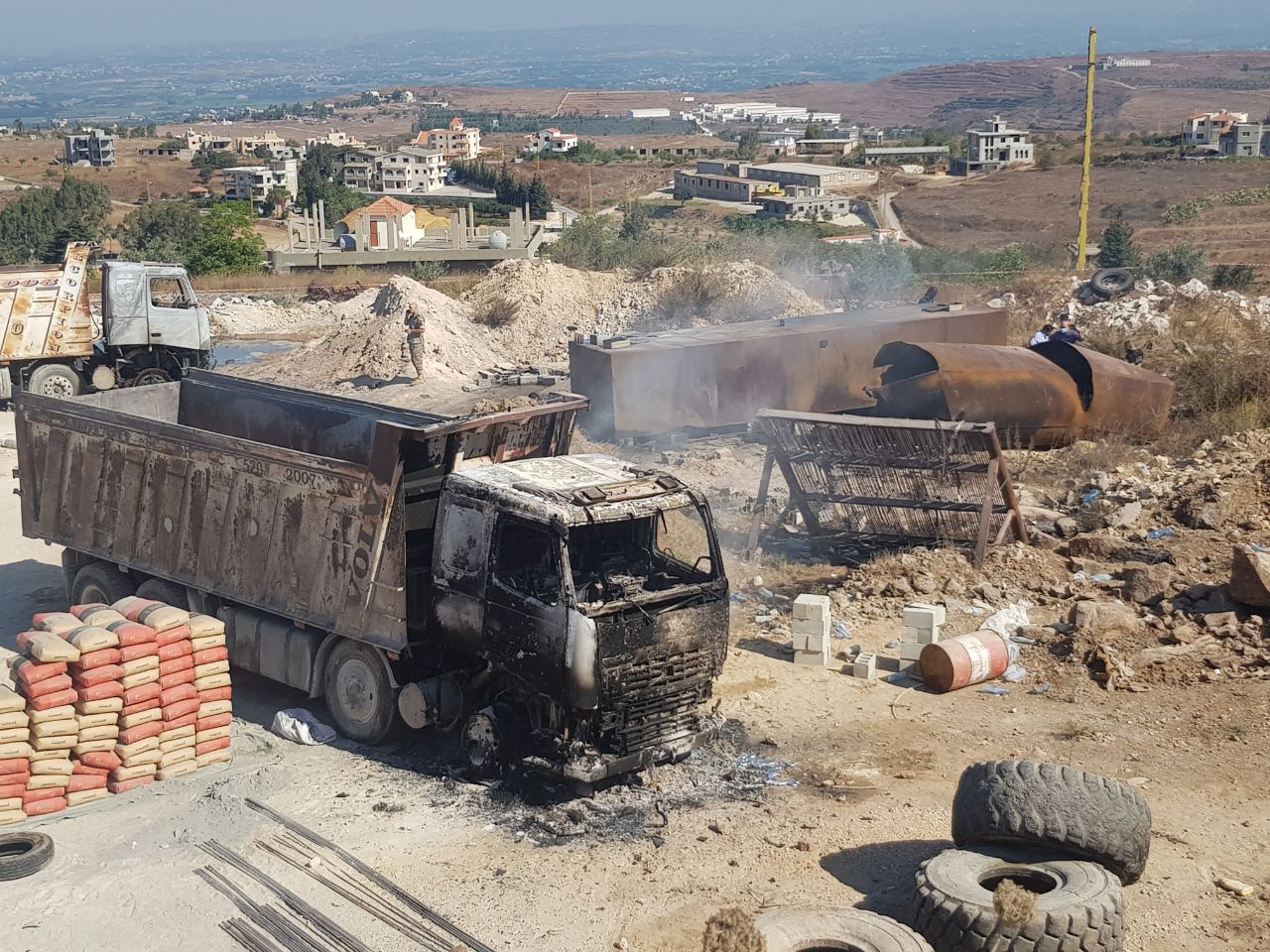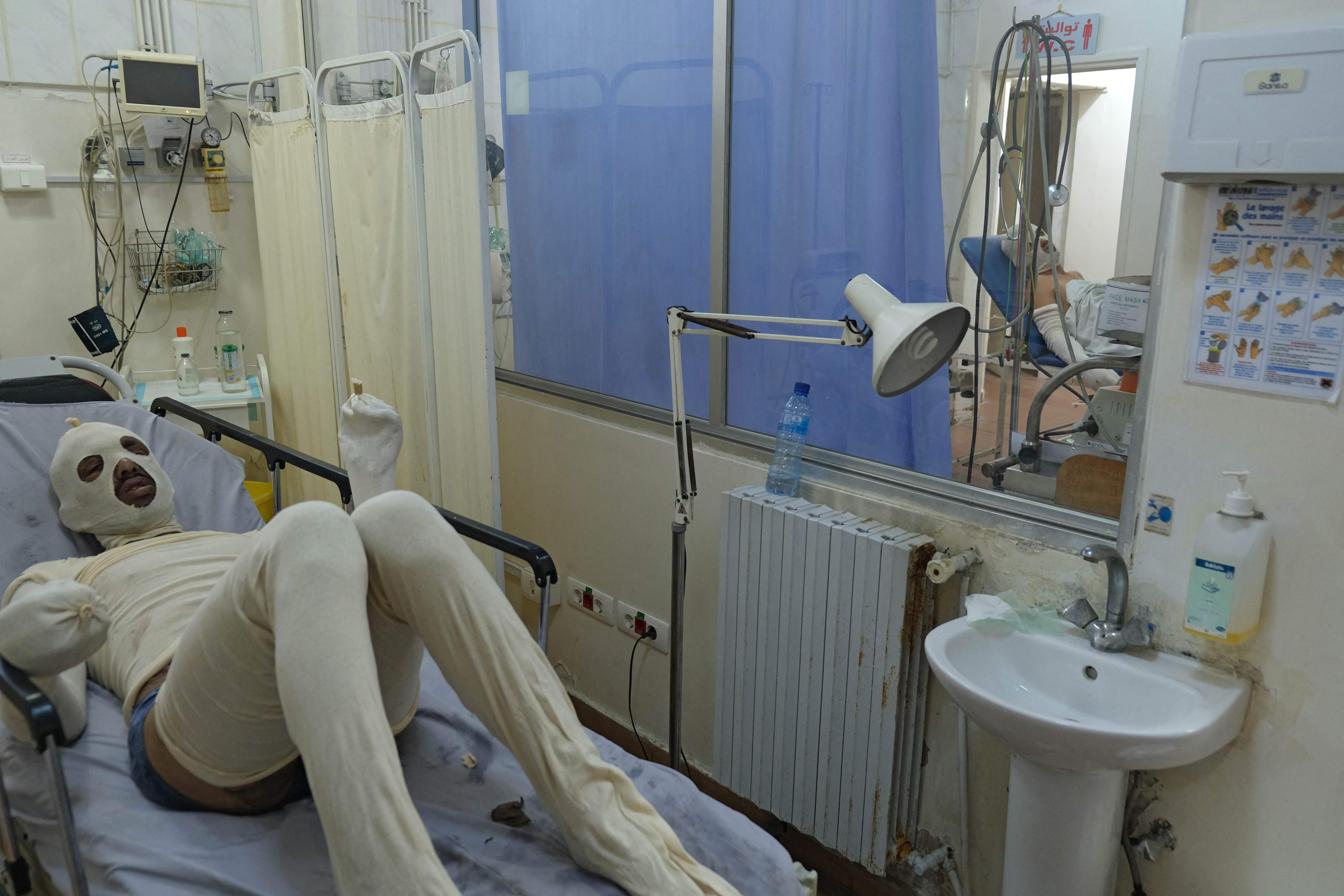Lebanon fuel explosion kills 22 and injures dozens more
Lebanese officials say tank exploded while petrol was being given to local residents in early hours of Sunday

Your support helps us to tell the story
From reproductive rights to climate change to Big Tech, The Independent is on the ground when the story is developing. Whether it's investigating the financials of Elon Musk's pro-Trump PAC or producing our latest documentary, 'The A Word', which shines a light on the American women fighting for reproductive rights, we know how important it is to parse out the facts from the messaging.
At such a critical moment in US history, we need reporters on the ground. Your donation allows us to keep sending journalists to speak to both sides of the story.
The Independent is trusted by Americans across the entire political spectrum. And unlike many other quality news outlets, we choose not to lock Americans out of our reporting and analysis with paywalls. We believe quality journalism should be available to everyone, paid for by those who can afford it.
Your support makes all the difference.At least 22 people have been killed and dozens more suffered burns and other injuries after a warehouse where fuel was illegally stored exploded in Lebanon on Sunday morning.
Some 79 people who were wounded in the blast were evacuated by the Lebanese Red Cross from the site in the village of Tleil, near the border with Syria.
While it was not immediately clear what caused the explosion, officials said the blast occurred after an order was given by the army to distribute 60,000 litres of petrol stored at the warehouse to local residents. Fuel smuggling operations have been ongoing for months.
The explosion is just the latest tragedy to befall the country, which is suffering from devastating political and economic turmoil and last year saw a massive blast at Beirut’s port which killed at least 214, wounded thousands and destroyed parts of the capital.
With the economy on its knees and reports of shortages of basic supplies, residents had gathered to buy the fuel which is often only available on the black market or at inflated prices.
There are fears the toll of dead and injured may grow, with Lebanese Red Cross members still searching the area for more victims.

The charity said 24 ambulances and 75 paramedics were at the scene and more than 100 blood units and plasma had been delivered.
A video being shared on social media showed residents gathering at the site before the explosion, filling up containers with fuel.
Footage showed the charged remains of what appeared to be part of a tanker that exploded. Lebanese soldiers, a Red Cross vehicle and other trucks could be seen in the area.
Hospitals in northern Lebanon were calling for blood donations of all types and the Lebanese health minister, Hamad Hassan, called on hospitals in northern Lebanon and the capital, Beirut, to receive those injured by the explosion, saying that the government will pay for their treatment.
Outside the Salam Hospital in the northern city of Tripoli, a woman collapsed after she was told her son succumbed to his wounds.
“Oh my God. He has little kids,” the woman said.
Marwa el-Sheikh, from Tleil, who was waiting for news about her brother who was being treated for burns, and her brother-in-law, who was still missing, said: “Some people were burnt beyond recognition.
“They are the victims of the shortcomings and carelessness of our politicians who led us to this.”
Tleil is less than three miles from the Syrian border, but it was not immediately clear if the fuel in the tanker was being prepared to be smuggled to Syria, where prices are much higher compared to those in Lebanon.
On Saturday, Lebanese troops were deployed to petrol stations, forcing owners to sell fuel to customers. Some had been refusing to sell in the hope of making a big profit when prices increase with the end of subsidies.
The Lebanese army has also been cracking down on smugglers active along the Syrian border, confiscating thousands of litres of petrol in recent days.
Additional reporting by agencies
Join our commenting forum
Join thought-provoking conversations, follow other Independent readers and see their replies
Comments